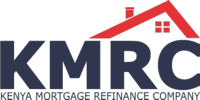In the Ngara area of the city of Nairobi lies the first development to be promoted by the government of Kenya under the affordable housing agenda. This project has been a game changer not only for the households looking to purchase affordable housing units but also for a group of 1,600 artisans in Nairobi’s light industry popularly known as jua kali.
The Park Road development consists of 1,370 units whose cost ranges from Ksh. 1.5 million ($13,000) for the one bedroom (30.0 square meters in plinth area) to Ksh. 4.0 million ($35,000) for the three bedrooms (80.0 square meters in plinth area).
When President Uhuru Kenyatta launched the Big Four Agenda in December 2017, Peter Muema Muthaka, the Chairperson of the Jua Kali Association in Nairobi’s Kariobangi area, was grappling with how the opportunity promised by construction under the affordable housing pillar could be tapped by Nairobi’s vast light industry.
“We realized that without a company we could not procure any job. So, we registered a company in 2018 called Ngokamka Holding Limited which is owned by three jua kali clusters from Ngong’, Kamukunji and Kariobangi. We were then given a contract for Park Road by the government and the China State Engineering Corporation Company”, says Peter Muthaka who now serves as the Operations Director of the company.
Muthaka says the contract secured under the affordable housing program has made the Ngokamka Holding Limited bankable. Whereas in the past players in the jua kali industry would be shunned by formal financial institutions, registering the business and obtaining contracts through the affordable housing programme has helped de-risked the business and support jobs.
“Before, banks were not giving jua kali money. Now when we get a job, we look at the budget and determine whether there is any money we need from Housing Finance bank and all we need is a letter from the company contracting us as long as the payments will go through our account with the bank. Once we are paid, we notify the bank to make its deduction from the account”, Muthaka says.
Ngokamka has been able to receive loans to the tune of Ksh. 122.0 million from Housing Finance since its inception. This financing has been crucial in helping the company to meet its working capital requirements and scaling the business.
“For the Park Road project, the wooden doors we supplied were 13,500; metallic doors were 8,500; the windows were around 17,500. So, we decided how to divide this among clusters. We have finished the project but now we have some small job in Lavington because the China State Engineering Corporation Company has realized we can work. We have been able to buy some machines and there are private companies looking for us”, Muthaka says.
The informal sector in Kenya is the anchor driver of employment creation with 14.0 million engaged in jobs accounting for 80.0 per cent of Kenya’s labour force. Affordable housing construction creates jobs, with international experience showing between 5 and 9 jobs per new housing unit. Creating avenues through which players in the informal sector formalize operations and mainstream within the economy is the first step in ensuring their sustainability over the long term.
The Government of Kenya’s affordable housing initiative through the Kenya Mortgage Refinance Corporation (KMRC) is supported by the World Bank Group.
